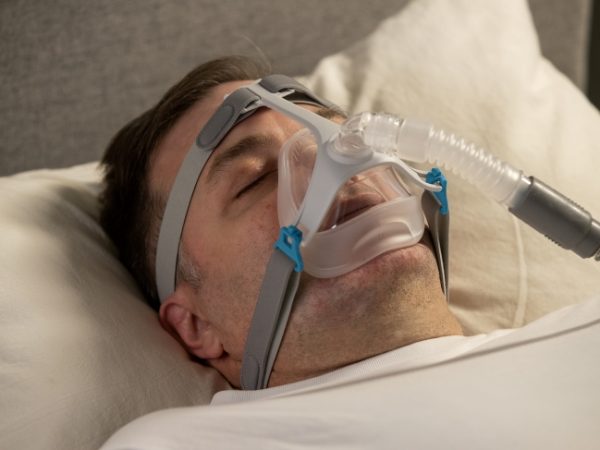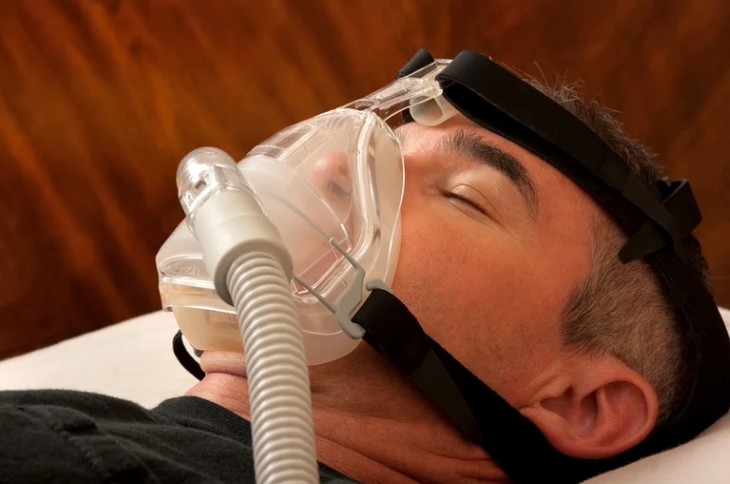15
May

Do you ever wake up gasping for air in the middle of the night? Is your sleep constantly interrupted by loud snoring? These could be signs of sleep apnea, a surprisingly common condition affecting millions of people worldwide. It occurs when your throat muscles relax during sleep, partially or completely blocking your airway. This can lead to brief periods where you stop breathing altogether, disrupting your sleep cycle and leaving you feeling exhausted during the day.
If left untreated, sleep apnea can have serious health consequences, increasing your risk of heart disease, stroke, and high blood pressure. Thankfully, there are effective treatments available, and one of the most common and successful is the use of reliable sleep apnea masks, also known as CPAP (Continuous Positive Airway Pressure) masks.

There is no one-size-fits-all solution when it comes to apnea masks. The right one for you will depend on several factors, including the severity of your condition, your facial structure, and personal preferences. Choosing the right one can significantly impact your comfort and treatment success, so let’s go over some of the basic types:
Consulting with a sleep specialist or respiratory therapist is crucial to determine the most appropriate design for your specific needs. They can help you try on different masks, assess the fit, and address any concerns you might have. With the right CPAP mask and proper adjustments, CPAP therapy can become a comfortable and effective way to manage sleep apnea and achieve a restful night’s sleep.
The severity of your condition, measured by the AHI (Apnea-Hypopnea Index) score, plays a crucial role. For mild to moderate sleep apnea, masks with less coverage like nasal or nasal pillow masks might suffice. However, severe sleep apnea often requires the secure seal provided by a full face mask to deliver higher air pressure effectively.
A mask’s fit is essential for optimal comfort and preventing air leaks. People with beards or facial hair might struggle with nasal masks achieving a proper seal. Conversely, those with a flat nose bridge might find full face masks more challenging to fit comfortably. If you primarily sleep on your back, any mask type can work. However, stomach sleepers might find full face masks more comfortable as they avoid pressure on the nose. Side sleepers may benefit from masks with headgear that allows for more movement without dislodging.
Ultimately, comfort is key! Some users prioritise minimal facial contact, making nasal pillow masks ideal. Others might prefer the stability and wider coverage offered by full face masks. Trying different mask types under a doctor’s guidance can help determine your preference.
Beyond treating the underlying condition, sleep apnea masks offer a variety of benefits that can significantly improve your quality of life. Sleep apnea disrupts your sleep cycle by causing frequent micro-awakenings. These brief moments of waking may go unnoticed, but they prevent you from reaching deeper, more restorative sleep stages.
The CPAP masks keep your airway open, eliminating these micro-awakenings. This allows you to cycle through all sleep stages uninterrupted, including REM sleep, which is crucial for memory consolidation, learning, and emotional regulation. As a result, you wake up feeling refreshed, mentally sharper, and ready to tackle the day.
Snoring is a hallmark symptom of sleep apnea, caused by the vibration of relaxed tissues in your airway as you struggle to breathe. The CPAP masks prevent this airway collapse by delivering a gentle stream of pressurised air. This not only keeps your airway open but also eliminates the vibration and noise associated with snoring. This benefit extends beyond just a quieter bedroom.
A good night’s sleep for your partner translates to an improved mood, better focus, and potentially even a boost to their immune system. The consequences of untreated sleep apnea are far-reaching. The constant struggle to breathe during sleep puts a strain on your cardiovascular system, leading to high blood pressure, increased risk of heart attack and stroke.
Studies have shown that CPAP therapy can effectively lower blood pressure and improve blood oxygen levels, reducing the risk of these cardiovascular complications. Furthermore, sleep apnea can negatively impact your metabolism and hormone regulation. CPAP therapy can help regulate these processes, potentially improving insulin sensitivity and reducing the risk of type 2 diabetes.
Chronic sleep deprivation caused by sleep apnea zaps your energy levels. You may feel constantly tired, struggle to concentrate, and lack motivation for physical activity. CPAP therapy, by ensuring uninterrupted sleep, allows your body to fully recharge. This translates to increased daytime energy, improved focus, and a greater capacity for physical activity. With more energy, you can accomplish more throughout the day and experience a heightened sense of well-being.
The constant fatigue and oxygen deprivation associated with sleep apnea can have a significant impact on your mood. Studies have linked untreated sleep apnea to an increased risk of depression, anxiety, and irritability. CPAP therapy, by promoting better sleep quality and increasing energy levels, can significantly improve your mood and emotional well-being. You may find yourself feeling more positive, optimistic, and better equipped to handle daily stressors.
Living with sleep apnea doesn’t have to be a life sentence of poor sleep and health complications. With the right diagnosis and treatment, you can reclaim control of your sleep and experience a dramatic improvement in your quality of life.
If you suspect you might have sleep apnea, talk to your doctor. They can recommend a sleep study to diagnose the condition and determine its severity. If CPAP therapy is recommended, a sleep specialist will work with you to find the right mask and pressure settings to ensure optimal comfort and treatment effectiveness.
Remember, adjusting to CPAP therapy can take some time. Be patient with yourself and work with your doctor to address any initial challenges. The long-term benefits of a good night’s sleep and improved health are well worth the initial adjustment period.